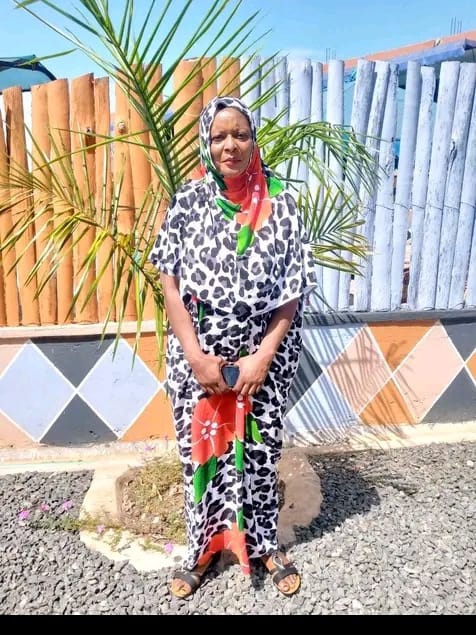A shocking incident unfolded in Lumakanda, Lugari, as Ebby Opisa 51 years old , a Woman Living with HIV (WLHIV) over 20 years faithfully adhering to her medication, was arrested and subjected to discrimination and mistreatment by law enforcement authorities. Ebby Opisa's experience highlights the urgent need for improved awareness and adherence to guidelines when dealing withbPersons Living With HIV (PLHIV) in police custody.
The arrest occurred at 10 am in the morning on 19th September 2023when Ebby Opisa informed the Officer in Charge of the Lumakanda Police Station, Western Kenya (OCS), who was identified as Madam Wilkster, of her HIV-positive status and the critical need to collect their life-sustaining medication. Instead of showing empathy and understanding, Madam Wilkster's response was unexpectedly harsh and callous. She callously instructed Ebby Opisa to call someone to bring their medication, despite Ebby Opisa explaining that they lived alone and had no one to turn to.
Ebby Opisa's desperate pleas to be allowed to go to the Lumakanda Comprehensive Care Centre (CCC), which was a mere 200 meters away, fell on deaf ears. In a shocking turn of events, her phone was confiscated, and locked up in what she described as "cold cells." Repeated requests for assistance through phone calls went unanswered, leaving Ebby Opisa without access to both her medication and communication with the outside world.
Madam Wilkster's response to Ebby Opisa's predicament was far from what should be expected when dealing with PLHIV in police custody. The incident raises several concerning issues:
1. Violation of Confidentiality: Ebby Opisa's HIV status should have been handled with utmost confidentiality. Disclosing this information openly is a breach of her privacy.
2. Denial of Access to Medication:
Denying Ebby Opisa access to her prescribed HIV medication is a grave violation of her rights. Timely access to medication is crucial for PLHIV(Persons Living With HIV)to manage their condition effectively.
3. Discrimination: Madam Wilkster's refusal to consider Ebby Opisa's medical needs and her harsh response is a form of discrimination. PLHIV are entitled to equal treatment and respect under the law.
4. Lack of Safety Measures: If there were concerns about potential transmission of HIV, proper safety measures should have been taken rather than subjecting Ebby Opisa to incarceration in uncomfortable conditions.
5. Potential Rights Violation: Locking up an individual without access to their medication, communication, or medical care raises concerns about the possible violation of their legal rights.
In conclusion, Ebby Opisa's experience in Lumakanda serves as a stark reminder of the importance of adhering to guidelines and respecting the rights and dignity of PLHIV in police custody. Discrimination and mistreatment of PLHIV are not only unethical but may also have legal repercussions.
This incident calls for a thorough investigation, accountability for those responsible, and a renewed commitment to educating law enforcement personnel on the proper handling of PLHIV in custody. It is imperative that such incidents are not repeated, and that the rights and well-being of all individuals, including PLHIV, are safeguarded at all times.



Ebby did what anyone living with HIV AIDS should have done under the circumstances. She informed the authorities that she was on medication. She disclosed her HIV positive status believing that she would get help in accessing her medication. Since the outcome was to be treated without regard to confidentiality I fully agree that someone has to account for this callous behavior.
ReplyDelete